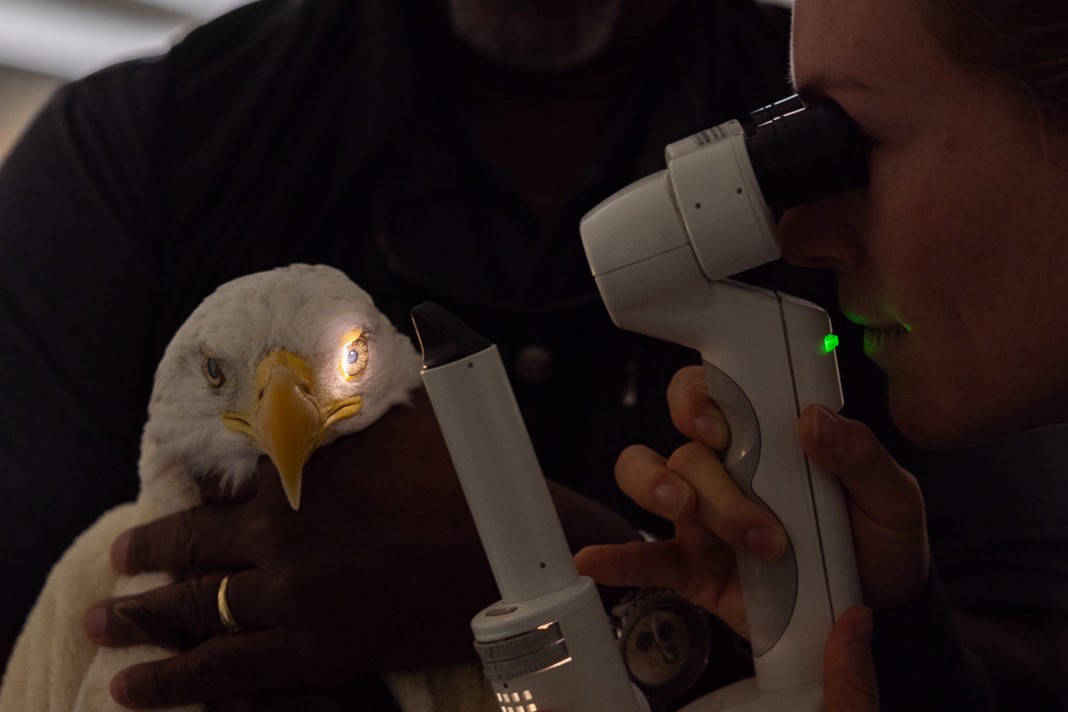
Challenger, the nation’s most famous bald eagle educational ambassador, underwent cataract surgery on Tuesday, June 18, at the University of Tennessee College of Veterinary Medicine.
As an eaglet, Challenger was blown from his nest in 1989. Well-meaning humans found him and cared for him, but he imprinted on people and was unable to be released. Authorities took him to the American Eagle Foundation (AEF), which cares for and rehabilitates birds of prey. The foundation has released over 190 eagles back into the wild.
Since 1991, Challenger helped AEF educate people about the plight of the bald eagle which had been added to the Endangered Species List in 1978. Trained to free fly, Challenger soared over many events including a presidential inauguration, the World Series, NFL Pro Bowls, NCAA College Football National Championships, Neyland Stadium, and the Daytona 500. Challenger was at the White House when bald eagles were removed from the Endangered Species List in 2007. Many of Challenger’s historic flights and appearances can be found on the AEF YouTube channel.
The staff at American Eagle Foundation closely monitor the health of over 80 birds of prey birds in their care with routine assessments and physicals and retired Challenger from free-flighted programs due to the onset of cataracts in 2019. Just like humans, animals can also develop cataracts. Over time, these cataracts have gradually impacted Challenger’s day-to-day quality of life. After careful consideration and consultation with avian care staff, veterinary experts, and organizational leadership, AEF decided to proceed with cataract surgery; it was time to give Challenger eagle eyes once more.
Ophthalmologists at the University of Tennessee College of Veterinary Medicine (UTCVM) evaluated Challenger and determined he is a viable candidate for the cataract procedure. Dr. Braidee Foote, an ophthalmology specialist at the veterinary college, was honored to serve as Challenger’s surgeon. “He is an American figure and symbol of wildlife conservation at its best. Cataracts can significantly diminish the quality of life, especially for these majestic birds who depend heavily on their vision, but we are hopeful for a successful outcome that will improve Challenger’s vision.” Challenger’s medical team also included specialists from UTCVM’s zoological companion animal service and anesthesia service.
As with any surgical intervention, there are inherent risks involved. However, all indications suggest that this surgery is a necessary step in safeguarding Challenger’s continued quality of life. “This surgery is more than a medical procedure,” says Jessica Hall, AEF executive director. “It’s about giving back to an individual who has inspired countless others across our nation. We are committed to providing the highest level of care and ensuring Challenger’s story continues to inspire us all.”